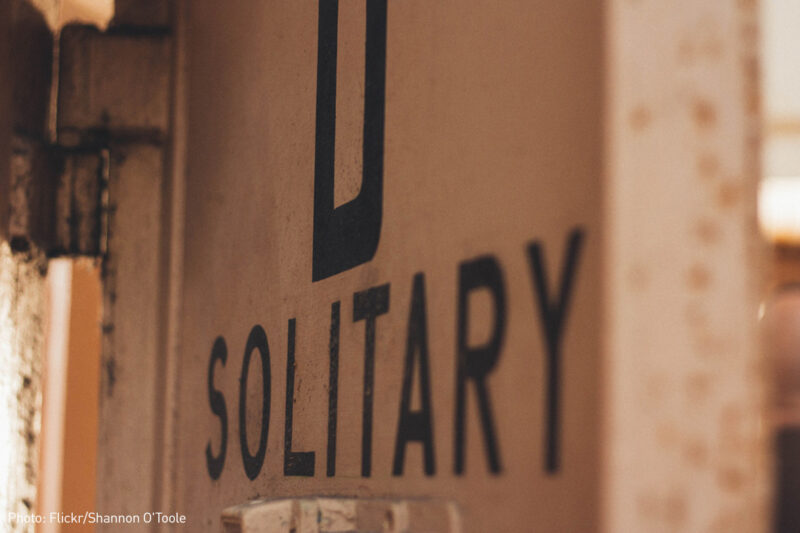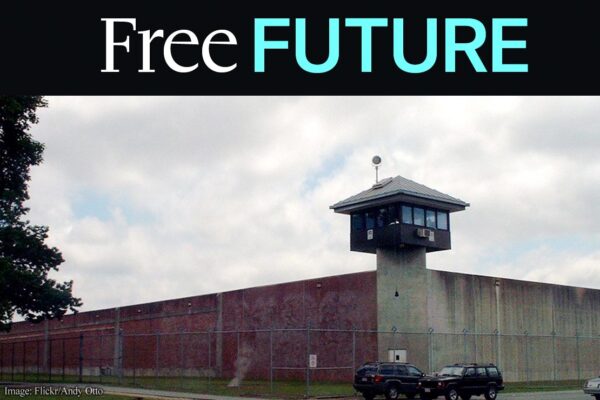
The American people got a wake-up call yesterday from President Barack Obama about solitary confinement, a barbaric practice that’s routine in our country’s prisons, jails, and juvenile detention centers. The White House delivered a new report on solitary from the Department of Justice and a simultaneous pledge in an op-ed by the president to sharply reduce federal prisons’ reliance on this inhumane practice.
For state and local jails and prisons across the country, the Justice Department presents its first-ever guide to cutting back on solitary — principles the president endorsed.
On any given day, as many as 100,000 people in U.S. prisons are held in solitary, where they are deprived of almost all human interaction, often sustaining permanent psychological damage. Many solitary survivors — like Reginald Dwayne Betts, Anthony Graves, and James Burns — left prison long ago but remain haunted by their days, months, and years in the hole.
In his op-ed, the president doesn’t mince words about solitary’s dangers — not only to prisoners’ mental health but to the world they must reenter when they’ve served their time:
How can we subject prisoners to unnecessary solitary confinement, knowing its effects, and then expect them to return to our communities as whole people? It doesn’t make us safer. It’s an affront to our common humanity.
President Obama has also committed to the recommendations in the Department of Justice report targeting solitary in the federal prison system. For the estimated 10,000 people in solitary in those prisons, the changes will be dramatic:
- Solitary cells will no longer hold people with serious mental illnesses who ought to be in treatment, not in draconian conditions that make their conditions worse and too often contribute to self-harm and suicide.
- Youth under 18 won’t be sent to solitary, where the adolescent brain is at high risk for permanent damage.
- Transgendered prisoners, those with physical disabilities, and other vulnerable people won’t find themselves in solitary for no other reason than “their own protection” from other prisoners; instead special units for vulnerable prisoners will be created.
- Nonviolent infractions and other minor rule breaking — like talking back to an officer or refusing a new cell assignment — won’t be punishable by solitary.
The goal for both the federal prison reforms and the principles aimed at the states is to make solitary the very last resort for prison officials. For years, that vision — solitary reduced to a rarity or eliminated altogether — has motivated the ACLU, the faith community, human rights leaders like UN Special Rapporteur Juan Mendez, prisoners and their families, and the many others in the movement against solitary confinement. Increasingly, lawmakers and corrections officials are joining us in recognizing solitary’s harms, to prisoners but also to society.
With the Justice Department’s report and President Obama’s reforms, we have even more hope that this country can leave solitary behind.



